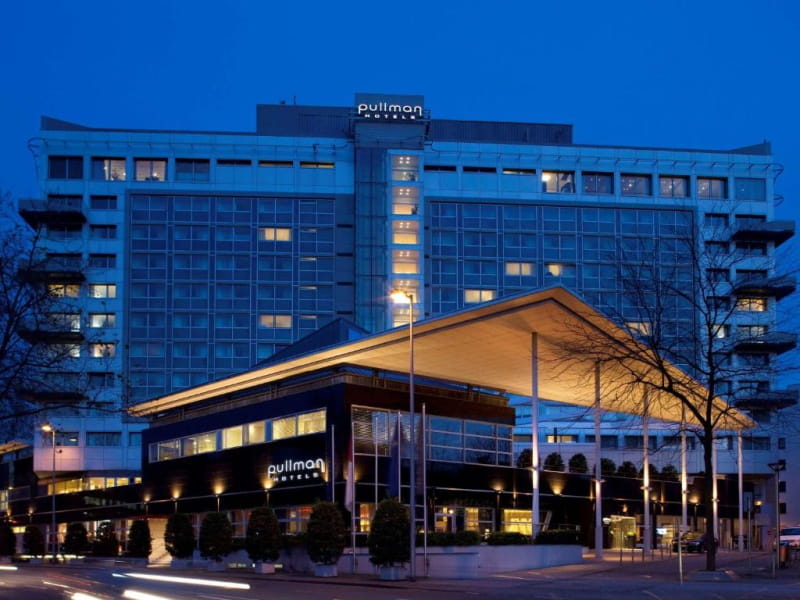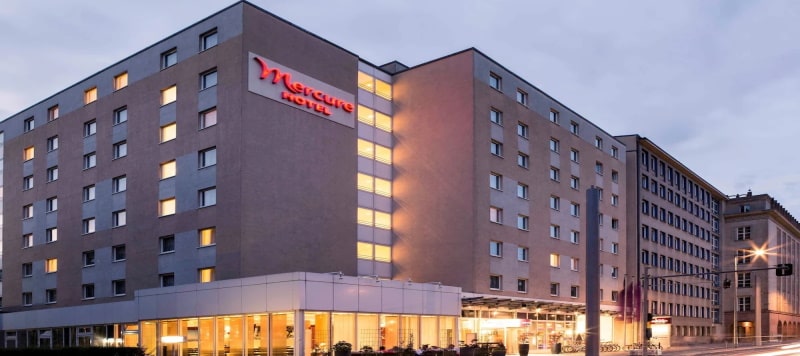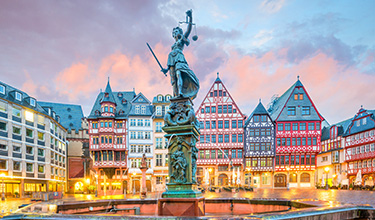
Germany is a beautiful country in Europe renowned for its dramatic natural settings, iconic landmarks, signature German cuisines, modern cities, and World Heritage Sites. It’s a major cultural centre with around 300 theatres, hundreds of museums displaying world-class art, and a year-round calendar of fun-filled festivals and events, including Oktoberfest - best celebrated in Munich, Karneval, and the Christmas market season. Brightsun Travel offers cheap Germany holidays from the UK, including to Berlin, the country's capital and largest city, as well as the charming city of Frankfurt, so why not make it your goal to visit this diverse country?

Helenenstraße 14, 50667 Köln, Germany

Invalidenstraße 38, 10115 Berlin, German

Berlin is in the north-east of Germany. The history of the city can be traced back to the twelfth century. The devastation of World War II resulted in much of Berlin's architecture being badly damaged or destroyed. The city was subsequently divided by a wall separating East and West Germany, which was finally demolished in 1989. Berlin has become a fascinating holiday destination in recent years. It has a wealth of museums, a vibrant nightlife, high-quality restaurants and regular festivals celebrating all genres of music. There are many attractive parks for relaxation. Outdoor activities include golf, cycling and skateboarding.

Frankfurt was founded on the River Main more than 2,000 years ago. For centuries, it operated as an independent city state before being absorbed into Prussia. Today's city is famous for its individualism. As the financial hub of Germany, it has developed a skyline worthy of Manhattan. The Commerzbank Tower is the tallest structure, standing at 850 feet (259 metres). By contrast, the southern half of the city includes the Frankfurter Stadtwald, an ancient forest covering 48 square kilometres. It features foxes and wild boar, lakes and hiking trails. Frankfurt also includes historic buildings and museums.
Currency: You’ll be spending Euros.
Language: German.
Local Time: German time is two hours in advance of GMT.
Flight time from the UK: Approximately one hour fifty minutes to Berlin, Frankfurt and Munich.
Tourist Information: Visit the official German tourist information site for lots of helpful information regarding upcoming events, where to go, what to do, and how to get around.
Health/Travel Restrictions:To travel to Germany, British citizens need a valid passport. A visa is not required. For up to date travel advice and health recommendations visit the government’s travel advice for Germany.
A: No proof is required for COVID-19 vaccinations or tests.
A: May to September. October to April is best for skiing.
A: It's relatively inexpensive compared to other European countries.
A: There are many excellent cycling routes throughout Germany.
Berlin has many landmarks including the neoclassical Brandenburg Gate, which was built in 1791. Museum Island is a UNESCO World Heritage Site. It consists of many museums where important works of art and ancient collections are on display. The Berlin Cathedral was constructed in 1893 and features a large domed roof. It was partly destroyed in WWII, but the cathedral's interior has recently been restored.
Frankfurt has painstakingly recreated much of its Old Town including a series of buildings around the town square known as the Romerberg. Their Medieval, timbered facades provide the perfect setting for the famous, annual Christmas Market. The restored home of the nineteenth-century writer, Goethe, is now a museum. Outdoor pursuits such as cycling are popular as the city has many green spaces and parks.
Munich celebrates many German traditions such as the Karneval. It involves costumes and parades where public figures such as politicians are the targets of humour and satire. The most famous festival is the Oktoberfest, which began in 1810. A large funfair, brass bands and local, speciality beers provide entertainment that lasts for two weeks. A popular excursion is to Neuschwanstein Castle, King Ludwig's fairytale palace in the mountains.
German summer last from June to August. July is usually the hottest month with temperatures reaching 24°C (76°F). January is often the coldest month with temperatures falling to -3.8°C (25°F). The wettest month is June with approximately 69 millimetres of rain. December usually has the most snow with approximately 41 millimetres, although 71 millimetres often falls in Munich.
© 2021 Brightsun Travel